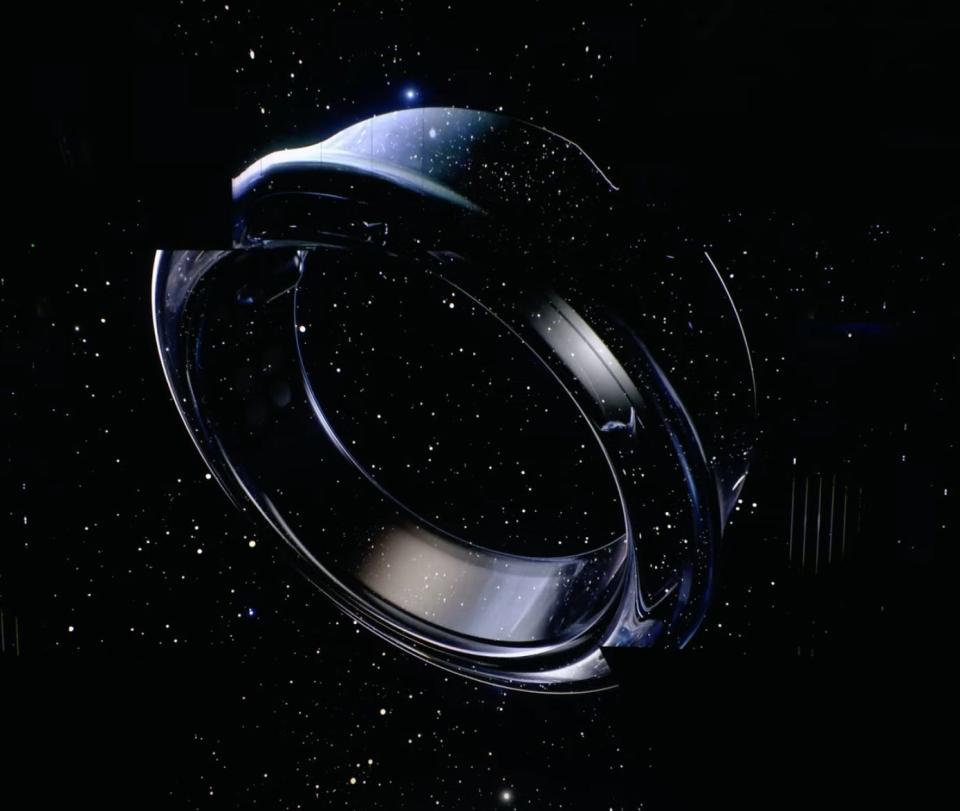Oura CEO calls Apple Watch sales ban a 'David and Goliath story,' says he'll keep an eye on Samsung's rival smart ring
Oura CEO Tom Hale weighed in on the patent dispute between Apple and healthtech company Masimo.
A lawsuit filed by Masimo halted the sale of the newest Apple Watches in the US.
Oura's CEO said the company, which holds many patents, will closely examine Samsung's Galaxy Ring.
Oura Health CEO Tim Hale doesn't seem worried about Samsung's plan to compete with Oura in the wearable "smart ring" market.
"We welcome the validation," he said in an interview on CNBC's "Squawk Box" show. "We welcome the idea that smart rings are something that people should have."
Hale said that Oura will closely monitor the development of Samsung's new "Galaxy Ring," announced last week, to see if there are any concerns of potential intellectual property violations.
"It's very important for us to protect the innovations that we've brought to the market," he said, noting that Oura has filed over 150 patent for their product.

"The reality is we'll see what gets delivered in the market," Hale said. "We'll see whether or not it infringes on [Oura's technology]. And frankly, we'll take the action that's appropriate."
Samsung did not immediately return Business Insider's request for comment ahead of publication.
Hale noted that, while "announcing that you have a smart ring is easy," it may be difficult for Samsung to design a wholly original product. "It's a hard problem. It's not easy."
The Oura CEO was also asked about Apple, which is currently involved in a patent dispute with medical tech company Masimo, which resulted in a halt on Apple's ability to sell any Apple Watches with a previously launched blood-oxygen monitoring feature.
That dispute, Hale said, is "a David-and-Goliath story for the ages."
"I mean, who would have thought that Masimo, this company that very few people have actually heard of … has been able to get Apple to take a product off the shelf."
The International Trade Commission, a US regulator, ruled in October that Apple infringed on Masimo's proprietary blood oxygen monitoring technology when the feature was included in the latest line of Apple Watches. The judgment barred Apple from selling the Series 9 and Ultra 2 watches in the US.
Apple appealed the import ban, but a federal court put it back in place last week. The iPhone maker is reportedly planning on removing the blood oxygen feature altogether via a software update to continue selling the watches.
Hale cited the Masimo dispute as evidence that smaller, lesser-known companies can still take on tech giants if they suspect patent infringement.
Oura's rings help monitor biometrics like heart rate and blood pressure. The devices also measure blood oxygen, though Hale said that feature is distinct from the Apple Watch technology — with sensors adapted for the finger rather than the wrist. He described it as "the same mechanism [as Masimo's], but a very different approach."
He conceded that some technological similarities between Oura's product and the Galaxy Ring might be unavoidable.
"There are certainly things like the laws of physics, or the approach you might take to pack a small number of sensors into a small space, or the algorithms that you use to create biosignals and turn them into meaningful data," he said. "Those are things that we'll see when the product is in the market and the evidence is in."
Read the original article on Business Insider


